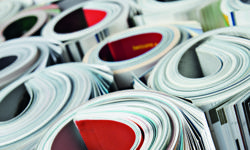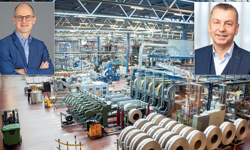
The Celloglas team has achieved Zero to Landfill and Zero Foil 2 Landfill status, in Leeds, Reading and Leicester, as part of their efforts to illustrate to the industry that sustainability is high on their agenda.
“FMCG brand owners and supermarkets are increasingly putting pressure on the supply chain to improve their environmental solutions, and that includes the recovery of materials that have previously been considered difficult to manage,” said Mike Jackson, Managing Director of Prismm Environmental.
He added: “Foil falls into this category because the logistics of moving it are difficult without a scheme that delivers economies of scale. The Zero Foil 2 Landfill scheme addresses this logistical problem meaning that there is now a viable way to recover foil.”
Marketing Director, Richard Pinkney said: “As an industry we generate a lot of waste and we have always been conscious of this. We have made efforts towards sustainable waste management in the past but we are now comfortable that we are doing all we can to ensure that none of our waste
streams are going to landfill. Instead, materials are diverted to other uses, so cardboard goes to paper mills, glass goes to be re-melted, plastic goes to be made into new packaging and food waste goes to composting.”
Celloglas’ waste management partner Prismm Environmental said: “We are secure that all the waste generated by the sites is now diverted from landfill, either through various recycling routes or recovery via RDF (Refuse Derived Fuel)”.
Waste which cannot be re-used or recycled is recovered via methods such as energy from waste, incineration, plasmosis and gasification.
Richard added: “We are a business committed to offering clients sustainable ways to print and so our improved environmental performance is a key part of our message to them that we are truly committed to reducing waste across the board, and that we see waste as a valuable resource that can be re-used wherever possible.”










